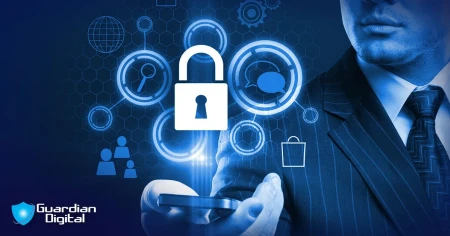Safeguarding Your Small Business with Best Practices for Email Protection
- by Brittany Day

Email remains a critical communication tool for businesses, but it also poses significant security risks if not properly protected. Implementing robust email protection practices is essential to safeguard sensitive information and maintain operational integrity. This becomes even more important when focusing on finding email protection for small businesses.
Imagine falling victim to a cyberattack that exposes sensitive data and renders your critical systems inaccessible. No organization can afford to be in this position. Here are some best practices every small business should consider to secure sensitive data and ensure business continuity.
Strong Authentication Methods
Implementing strong authentication methods such as two-factor authentication (2FA) adds an extra layer of security beyond just a username and password. This method requires users to provide two forms of identification before accessing their accounts, significantly reducing the risk of unauthorized access.
Robust Email Encryption
Email encryption ensures that sensitive data is protected during transmission. Implementing effective encryption protocols ensures that even if intercepted, emails remain unreadable to unauthorized individuals. Small businesses can benefit from adopting encryption technologies that integrate seamlessly with their existing email systems, ensuring both security and ease of use.
Anti-Phishing and Anti-Spam Measures
Comprehensive anti-phishing tools and robust anti-spam setups are crucial defenses against malicious emails. These tools filter out suspicious emails and phishing attempts, reducing the likelihood of employees inadvertently clicking on harmful links or downloading malicious attachments.
Regular Security Audits and Updates
Regular security audits help identify vulnerabilities in email systems and processes. Updating software and security configurations promptly mitigates potential risks associated with known vulnerabilities. Small businesses should establish a schedule for regular audits and updates to ensure their email protection measures remain current and effective.
Employee Training and Awareness Programs
Employees are often the first line of defense against email-based threats. Conducting regular training sessions on recognizing phishing attempts, suspicious emails, and safe email practices equips employees with the knowledge to identify and report potential security incidents. Increased awareness contributes significantly to overall email security within the organization.
Keep Learning About Email Protection Best Practices for Small Businesses
Implementing these best practices for email protection will enhance the security posture of your small businesses, safeguarding sensitive information and maintaining operational continuity.
You Can Mitigate Cyber Risk By Engaging in Best Practices
By adopting strong authentication methods, effective encryption protocols, comprehensive anti-phishing tools, conducting regular security audits, and prioritizing employee training, small businesses can significantly mitigate the risks associated with email-based threats.
For more information on email protection solutions tailored for small businesses, visit our website. For further insights and guidance on securing your business communications effectively, explore the resources below:
- Download a free cybersecurity awareness PDF to learn about implementing best practices for email security to protect your business from attacks.
- Improve knowledge and skills to ensure you stay up-to-date and can protect your business from email threats by signing up for our weekly newsletter.
Must Read Blog Posts
- Demystifying Phishing Attacks: How to Protect Yourself in 2025
- Must Read - How Phishing Emails Bypass Microsoft 365 Default Security
- Must Read - Shortcomings of Endpoint Security in Securing Business Email
- Must Read - What You Need to Know to Shield Your Business from Ransomware
- Must Read - Email Virus: Complete Guide to Email Viruses & Best Practices
- Must Read - Microsoft 365 Email Security Limitations You Should Know in 2025
Latest Blog Articles
- 8 Enterprise Email Security Best Practices to Prevent Cyberattacks
- Understanding the Importance of Data Security in HRIS
- The Hidden Risk: Leaked Employee Emails
- Giovanni Bechis' Bold Plans to Transform SpamAssassin
- Proven Ransomware Detection Techniques For Improved Security
- Boost Your Network Security with These Proven Techniques
- A Guide to Email Security: Training to Keep Your Team and Business Secure
- Enhancing Email Security: The Role of Unified Observability in Microsoft 365
- The Cloud Advantage: Boosting Your Business Email Security
- Mastering Multi-Factor Authentication (MFA): A Step-by-Step Guide for IT and Security Admins